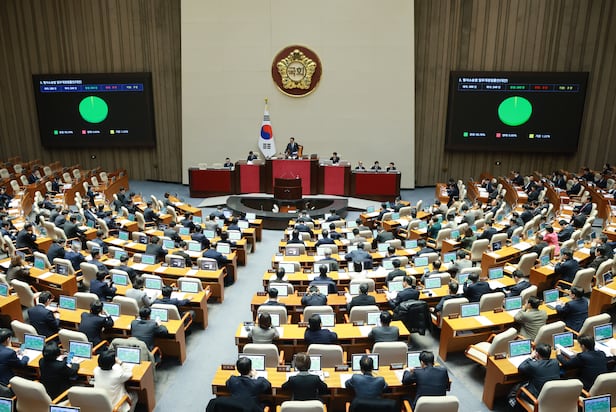
Key Points:
- Origin of the Dispute: Dr. Roa, a Panamanian official set to chair COP11, publicly challenged FDA’s scientific review of e-cigarettes and nicotine pouches, saying no independent consensus supports the claim these products are significantly less harmful.
- Scientific Evidence: Numerous international authorities, including the Royal College of Physicians, Public Health England, and the U.S. National Academies of Sciences, Engineering, and Medicine, have confirmed that non-combustible nicotine products are substantially less harmful than cigarettes.
- Impact of Remarks: Roa’s comments were seen as an attack on FDA’s independence and credibility, potentially undermining WHO’s authority in global public health governance.
- Background Factors: Analysts suggest WHO’s recent shift on harm reduction may be linked to U.S. funding cuts rather than new scientific evidence.
- Policy Risk: If this position is maintained at COP11, it could affect future global tobacco control policies, especially by hindering harm reduction strategies in low- and middle-income countries.
- Call to Action: Scholars and regulators urge WHO to base its policies on evidence and recognize the potential role of harm reduction products in reducing smoking-related disease and death.
As global tobacco control policy approaches a critical juncture, a senior World Health Organization (WHO) official’s public statement has sparked widespread concern among academics and industry alike. Dr. Reya Roa, a Panamanian health ministry official and the designated chair of the 11th Conference of the Parties (COP11) to the Framework Convention on Tobacco Control (FCTC) this November, recently issued a statement questioning the FDA’s scientific assessment of non-combustible nicotine products such as e-cigarettes and nicotine pouches.
In her statement, Roa asserted that there is currently “no independent, industry-free scientific consensus” supporting claims that these products are significantly less harmful than cigarettes. She further implied that FDA’s evaluations might lack independence. Her comments have been widely interpreted as a direct challenge to the authority of the U.S. regulator and its science-based decision-making.
However, many international and national scientific authorities have reached a strong consensus on the reduced risks of harm reduction products. For example:
- Royal College of Physicians (2016): Concluded that the long-term health risks of inhaled e-cigarette vapor are “unlikely to exceed 5% of those associated with smoking.”
- Public Health England (now the Office for Health Improvement and Disparities): Reported that e-cigarettes are at least 95% less harmful than smoking.
- U.S. National Academies of Sciences, Engineering, and Medicine (2018): Found that e-cigarettes emit substantially fewer toxic substances compared to combustible cigarettes.
Experts argue that Roa’s claims not only contradict established scientific evidence but also risk undermining WHO’s credibility in global public health governance. Some commentators note that WHO’s shift away from supporting harm reduction may be tied to reduced U.S. funding in recent years, rather than the emergence of new evidence. In fact, WHO’s 2015 report explicitly recommended that national authorities could use FDA’s regulatory framework as a model for best practices.
Industry analysts warn that if this stance persists at COP11, it could have serious implications for the future of global tobacco control policy. As the highest decision-making body under the FCTC, COP11 is expected to provide evidence-based guidelines for participating countries. If its chair denies existing scientific consensus, policy discussions risk drifting away from science, potentially delaying the adoption of harm reduction strategies in low- and middle-income countries.
We welcome news tips, article submissions, interview requests, or comments on this piece.
Please contact us at info@2firsts.com, or reach out to Alan Zhao, CEO of 2Firsts, on LinkedIn
Notice
1. This article is intended solely for professional research purposes related to industry, technology, and policy. Any references to brands or products are made purely for objective description and do not constitute any form of endorsement, recommendation, or promotion by 2Firsts.
2. The use of nicotine-containing products — including, but not limited to, cigarettes, e-cigarettes, nicotine pouchand heated tobacco products — carries significant health risks. Users are responsible for complying with all applicable laws and regulations in their respective jurisdictions.
3. This article is not intended to serve as the basis for any investment decisions or financial advice. 2Firsts assumes no direct or indirect liability for any inaccuracies or errors in the content.
4. Access to this article is strictly prohibited for individuals below the legal age in their jurisdiction.
Copyright
This article is either an original work created by 2Firsts or a reproduction from third-party sources with proper attribution. All copyrights and usage rights belong to 2Firsts or the original content provider. Unauthorized reproduction, distribution, or any other form of unauthorized use by any individual or organization is strictly prohibited. Violators will be held legally accountable.
For copyright-related inquiries, please contact: info@2firsts.com
AI Assistance Disclaimer
This article may have been enhanced using AI tools to improve translation and editorial efficiency. However, due to technical limitations, inaccuracies may occur. Readers are encouraged to refer to the cited sources for the most accurate information.
We welcome any corrections or feedback. Please contact us at: info@2firsts.com








